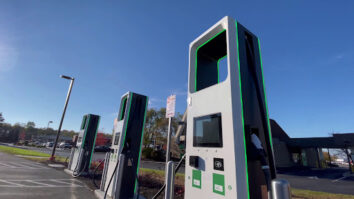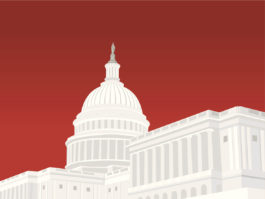This past couple of weeks, we’ve shared a lot of information about the three recently passed pieces of legislation that are the direct result of the coronavirus pandemic. With a little breather before the next round of government action, we thought we would share with our clients and friends in the NPO industry some thoughts on specific provisions of the CARES Act that are applicable directly to you.
The Coronavirus Aid, Relief, and Economic Security (CARES) Act signed into law on March 27, 2020 provides relief for nonprofits in addition to individuals, businesses, and state and local governments. Perhaps the most impactful element of the CARES Act is access to loan programs that have not historically been made available to nonprofits.
Paycheck Protection Program (PPP) Loans provide funds to eligible nonprofits to cover costs of payroll, certain overhead costs, and interest on debt service for a two-month period. The amount of funds available is 2.5 times the average monthly payroll costs (from the one year look back period prior to the application date) plus group health premiums and retirement contributions or $10 million, whichever is less. All or a portion of the loan may be forgiven in part or in whole if used for qualifying expenditures which include payroll, health care benefits, utilities, rent, and interest on mortgage loans. The unforgiven loan balance is repaid over two years at an interest rate of 0.5%. Eligible nonprofits are exempt under code section 501(c)(3) and have a total of 500 or fewer full and part-time employees. Nonprofits that receive Medicaid payments under Title XIX of the Social Security Act also qualify for the program. Collateral and personal guarantees are not required. Nonprofits receiving emergency funds under the EIDL Emergency Grant program can still apply for the PPP loan program. Beginning April 3, 2020, nonprofits can apply for loans through existing SBA lenders. If you have not already been in contact, you should reach out to your banking relationship today.
An Economic Injury Disaster Loan (EIDL) Emergency Grant is a $10,000 advance that can be received within three days of applying. The purpose of the grant is to cover paid sick leave, payroll, debt service, and other certain operating costs. Nonprofits can apply directly online with the SBA. Amounts forgiven under this grant reduce the forgivable portion of the PPP loan.
Economic Injury Disaster Loans (EIDL) provides loan proceeds up to $2 million for nonprofits, but exclude religious organizations. This program is subject to many of the traditional SBA underwriting standards with a maximum loan term of 30 years and interest at 3.75%. If you have received funding from the EIDL facility before applying for the PPP loan, the EIDL can be rolled into the PPP loan. Nonprofits can obtain an application on the SBA website.
Mid-Size Loan Program is a program to be created by the Treasury Department to provide funds for larger nonprofit organizations with between 500 and 10,000 employees. The program is still being developed and funding is unspecified. It’s expected this program will be administered through local financial institutions.
Other notable provisions in the CARES Act include providing for charitable giving incentives, unemployment tax hold harmless language, and refundable employee retention payroll tax credit.
- To encourage donors to support nonprofit organizations, there will be a new above the line deduction for total charitable contributions of up to $300. The deduction applies to cash contributions made in 2020 and can be claimed on 2020 tax forms. Taxpayers who itemize will receive a lift of the existing contribution cap, raising it from 60 percent of adjusted gross income to 100 percent. Annual limits for corporations are increased from 10 percent to 25 percent.
- The Act and most states have ensured nonprofit employers they will be held harmless for increases experience ratings due to increased layoffs related to COVID-19. Nonprofits who elected to participate in self-funded unemployment the Act provides for reimbursement of half of the costs of benefits provided to laid-off employees.
- As mentioned a previous post, the Act provides organizations a refundable employee retention payroll tax credit of up to $5,000 per employee, which will be claimed on the quarterly IRS Form 941. Employers must meet certain criteria to be eligible. Nonprofits participating in the PPP program are not eligible for this credit. You will want to evaluate the retention credit provides versus the PPP loan forgiveness to maximize the benefit your organization receives from the new laws.





